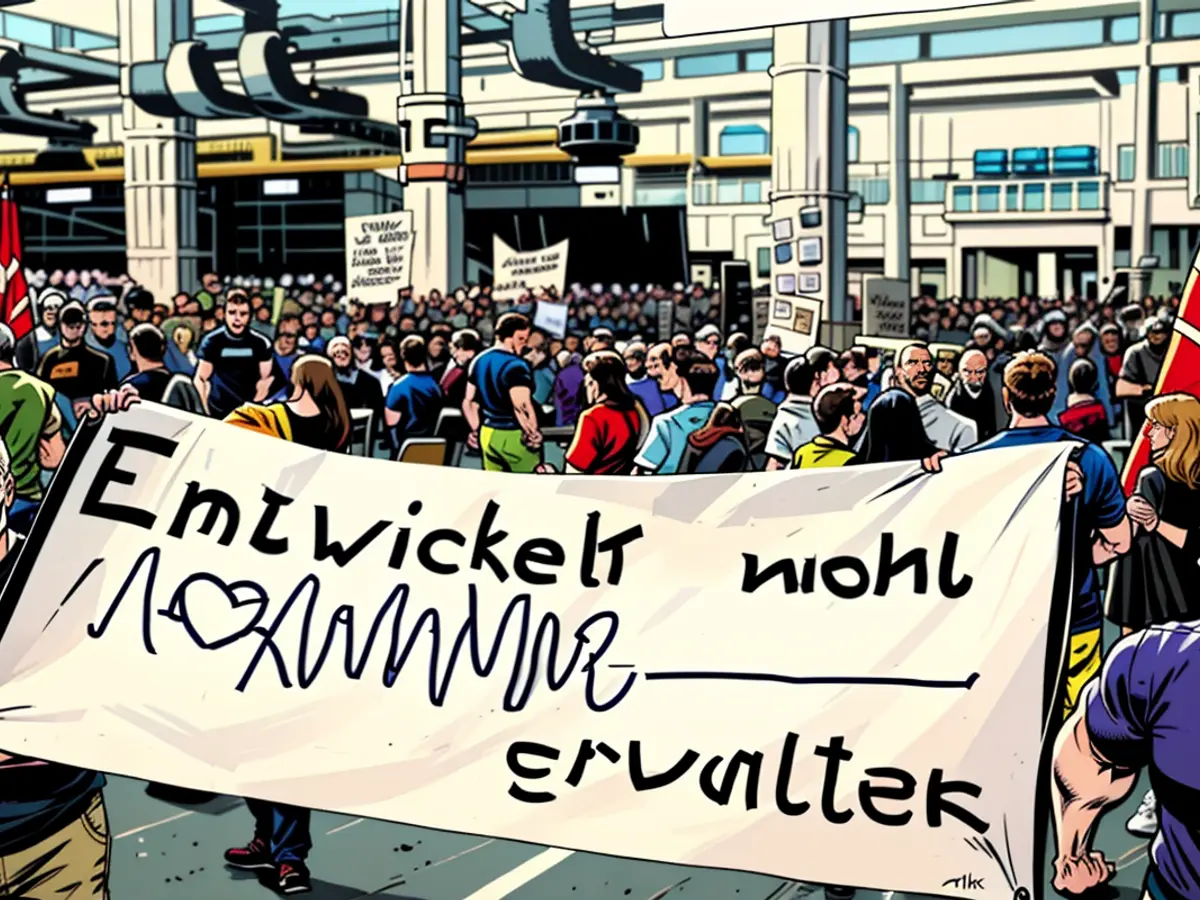The head of VW's worker's council expresses resistance towards factory shutdowns and job cuts.
Volkswagen's main brand revealed on Monday, following a top-level meeting, a stricter cost-cutting plan, not ruling out factory closures and layoffs due to operational issues. CEO Oliver Blume pointed to the tough situation in Europe's auto market and the diminished competitiveness of German manufacturing facilities as the main causes.
Cavallo acknowledged that the situation is "pretty serious" for the works council. However, she believes that shutting down factories, trimming workforce due to operational reasons, and implementing wage reductions are only acceptable "under one specific condition - when the overall business strategy is no longer viable." This isn't the case. Volkswagen isn't struggling due to its German sites or labor expenses, but rather "because the leadership team is falling short."
She advocated for a return "to our technical leadership role." Anything that doesn't contribute to technical leadership "and doesn't significantly impact our customers" should be reevaluated. The complexity "needs to be simplified, we need to curb our regulatory fervor, we need to put an end to our documentation obsession, and eliminate the numerous redundant security processes." This is the responsibility of management.
"If Volkswagen is facing a crisis," Cavallo added, "it's not just about the 120,000 employees at Volkswagen AG. It's about Lower Saxony. It's about Germany."
She also urged the "VW culture," where issues are resolved "through collaboration." If management strays from this, they can expect strong opposition from the workforce.
Cavallo stated that factory closures and layoffs should not be considered if the overall business strategy isn't compromised, as resistance to such measures could arise from the workforce due to their belief in the company's technical leadership. The leadership team needs to address unnecessary complexity, regulatory excesses, excessive documentation, and redundant security processes to ensure the company's success, not just for Volkswagen AG's 120,000 employees, but for Lower Saxony and Germany as a whole.







